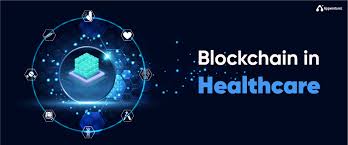

Blockchain in Healthcare: Revolutionizing the Future of Medical Services
The healthcare industry is in a constant state of evolution, driven by technological advancements that promise to enhance patient care, streamline operations, and reduce costs. One such groundbreaking technology is blockchain. Initially known for its role in powering cryptocurrencies, blockchain is now being recognized for its potential to transform various sectors, including healthcare. In this blog, we will explore how blockchain technology is revolutionizing the healthcare industry, its benefits, real-world applications, and the challenges it faces.
Understanding Blockchain Technology
Blockchain is a decentralized, immutable ledger that records transactions across multiple computers in a way that ensures security, transparency, and integrity. Each block in the chain contains a list of transactions, and once a block is completed, it is added to the chain in a linear, chronological order. The decentralized nature of blockchain means that no single entity has control over the entire network, making it resistant to fraud and hacking.
Benefits of Blockchain in Healthcare
- Enhanced Data Security
- Patient data security is a critical concern in healthcare. Blockchain’s decentralized and encrypted nature ensures that medical records are securely stored and can only be accessed by authorized parties. This reduces the risk of data breaches and unauthorized access.
- Improved Data Interoperability
- Healthcare systems often struggle with data interoperability, leading to fragmented patient information across different providers. Blockchain enables seamless sharing of medical records, ensuring that all healthcare providers have access to a patient’s complete and updated medical history, which can lead to better diagnosis and treatment.
- Transparency and Traceability
- Blockchain provides a transparent and traceable record of all transactions. In healthcare, this can be used to track the lifecycle of drugs, from manufacturing to delivery, ensuring the authenticity of pharmaceuticals and reducing the risk of counterfeit drugs entering the market.
- Efficient Billing and Claims Processing
- Blockchain can automate and streamline billing and claims processing, reducing administrative costs and minimizing errors. Smart contracts can be used to automatically execute and verify transactions when predefined conditions are met, leading to faster and more accurate claims settlements.
- Patient-Centered Care
- Blockchain empowers patients by giving them control over their own health data. Patients can grant or revoke access to their medical records, ensuring their privacy is maintained while enabling them to participate more actively in their healthcare decisions.
Real-World Applications of Blockchain in Healthcare
- Electronic Health Records (EHRs)
- Blockchain can create a unified and immutable patient record that is accessible to all authorized healthcare providers. This ensures that patient information is accurate, up-to-date, and easily transferable across different healthcare systems.
- Clinical Trials
- Blockchain can enhance the integrity and transparency of clinical trials by securely recording trial data and ensuring it is tamper-proof. This can improve the trustworthiness of trial results and streamline the regulatory approval process.
- Drug Supply Chain Management
- Blockchain can be used to track and verify the authenticity of drugs throughout the supply chain. This helps in combating counterfeit drugs and ensures that patients receive genuine medications.
- Telemedicine and Remote Monitoring
- Blockchain can secure data generated from telemedicine consultations and remote monitoring devices. This ensures the privacy and accuracy of patient data, facilitating better remote care management.
- Medical Research and Data Sharing
- Researchers can use blockchain to securely share and access medical data, fostering collaboration while ensuring patient privacy. This can accelerate medical research and the development of new treatments.
Challenges and Considerations
While the potential of blockchain in healthcare is vast, several challenges need to be addressed:
- Regulatory Compliance
- Healthcare is a highly regulated industry, and integrating blockchain technology must comply with existing regulations such as HIPAA in the United States. Ensuring blockchain solutions meet these regulatory requirements is crucial.
- Scalability
- Blockchain networks can face scalability issues, especially with large volumes of transactions. Developing scalable blockchain solutions that can handle the extensive data needs of healthcare systems is essential.
- Integration with Existing Systems
- Integrating blockchain with legacy healthcare systems can be complex and costly. Developing interoperable solutions that seamlessly integrate with existing infrastructure is a significant challenge.
- Data Privacy
- While blockchain enhances data security, ensuring the privacy of sensitive health information remains a concern. Implementing robust privacy measures and encryption techniques is necessary to protect patient data.
- Cost and Adoption
- The initial cost of implementing blockchain development can be high, and there may be resistance to adoption from stakeholders accustomed to traditional systems. Educating stakeholders about the benefits and potential cost savings of blockchain is essential to drive adoption.
Conclusion
Blockchain technology holds immense promise for transforming the healthcare industry by enhancing data security, improving interoperability, and streamlining operations. While challenges exist, the potential benefits of blockchain in healthcare far outweigh the hurdles. As the technology matures and regulatory frameworks adapt, blockchain is poised to become a cornerstone of the healthcare industry, paving the way for a more secure, efficient, and patient-centered future. Embracing blockchain in healthcare is not just a technological advancement; it is a step towards revolutionizing the way we deliver and manage healthcare services.

